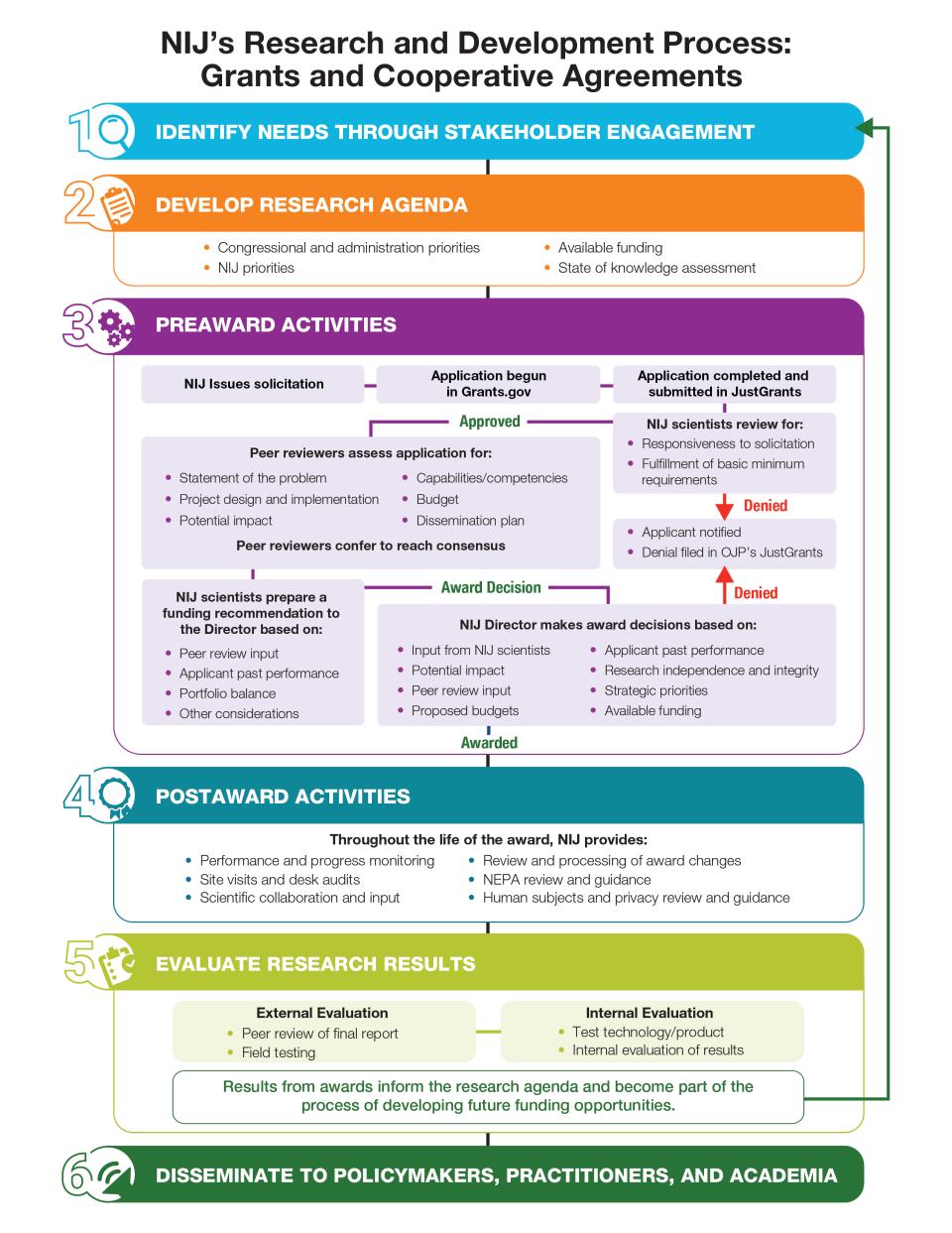NIJ's Research and Development Process: Grants and Cooperative Agreements
Description
Step 1: Identify Needs Through Stakeholder Engagement
Step 2: Develop Research Agenda based on:
- Congressional and administration priorities
- NIJ Priorities
- Available funding
- State of knowledge assessment
Step 3: Preaward Activities
- NIJ issues solicitation
- Applications begun in Grants.gov
- Application completed and submitted in JustGrants
- NIJ scientists review for:
- Responsiveness to solicitation
- Fulfillment of basic minimum requirements
- If denied in for, the applicant is notified, and a denial is filed in OJP’s JustGrants
- If approved, peer reviewers assess the application for statement of the problem, project design and implementation, potential impact, capabilities and competencies, budget and dissemination plan. The peer review process ends with reviewers conferring to reach a consensus.
- NIJ scientists prepare a funding recommendation to the Director based on peer review input, applicant past performance, portfolio balance, and other considerations.
- NIJ director makes award decisions based on input from NIJ scientists, potential impact, peer review input, proposed budgets, applicant past performance, research independence and integrity, strategic priorities, and available funding.
Step 4: Post Award Activities
Throughout the life of an award, NIJ provides:
- Performance and process monitoring
- Site visits and desk audits
- Scientific collaboration and input
- Review and processing of award changes
- NEPA review and guidance
- Human subject and privacy review and guidance
Step 5: Evaluate Research Results
Research results are reviewed:
- Externally through a peer review of the final report or field testing.
- Internally through testing of the technology or product and the internal evaluation of results.
Results from awards inform the research agenda and become part of the process of developing future funding opportunities.


